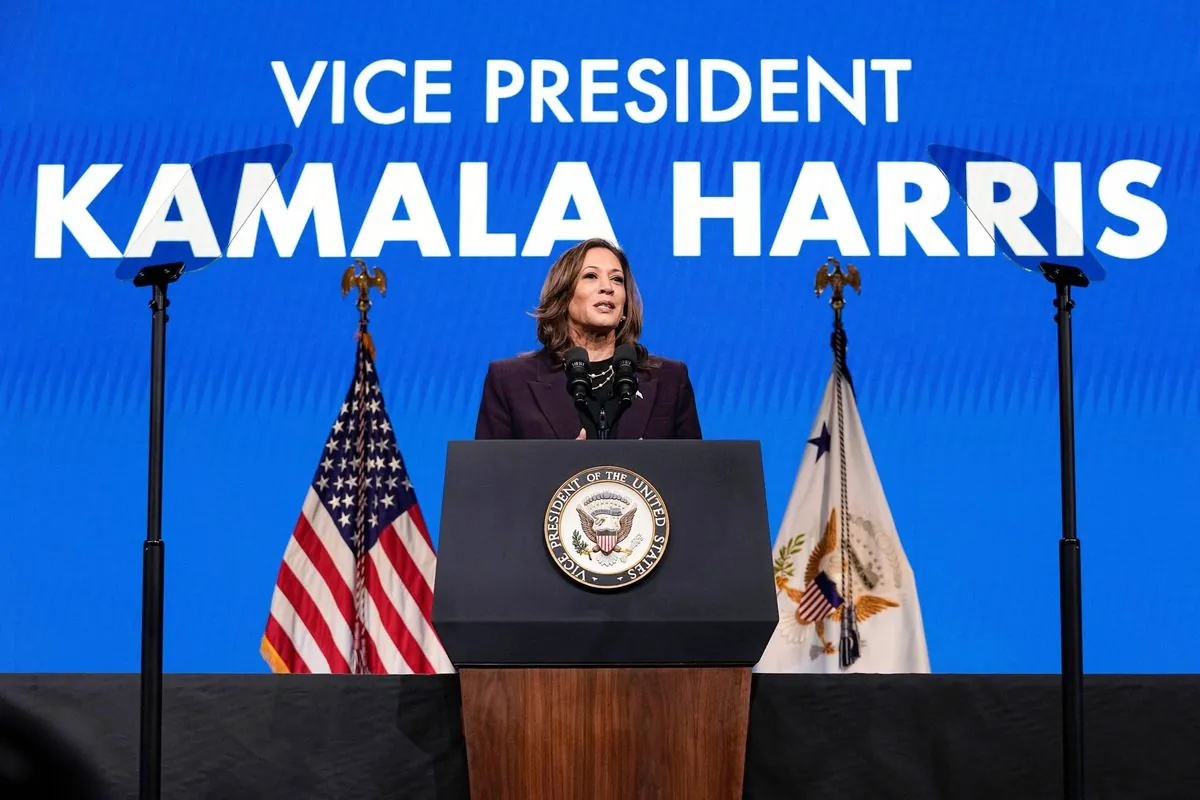Janet Jackson Retracts Misinformed Comments on VP Harris's Identity
Janet Jackson apologizes for incorrectly stating Kamala Harris is not Black. The singer's agent clarifies the comments were based on misinformation, emphasizing respect for the Vice President's accomplishments.

Janet Jackson has issued an apology following her recent comments about Vice President Kamala Harris's racial identity. The incident unfolded after an interview with the Guardian, published six days ago, where Jackson made inaccurate statements about Harris's background.
In the interview, Jackson claimed she had heard that Harris was not Black and that the Vice President's father was white. These assertions were quickly refuted by journalists and social media users, who pointed out Harris's well-documented background and her own identification as a Black woman.
Harris, born on October 20, 1964, in Oakland, California, has a diverse heritage. Her mother, Shyamala Gopalan, was an Indian-American biologist, while her father, Donald Harris, is a Jamaican-American economist. This multicultural background has been a significant part of Harris's identity throughout her career.

The Vice President's educational background further underscores her connection to the Black community. Harris attended Howard University, one of the most prestigious historically Black colleges in the United States, graduating in 1986 with a degree in political science and economics. Howard University, established in 1867, has played a crucial role in educating Black leaders for over 150 years.
Jackson's agent, Mo Elmasri, released a statement addressing the situation: "Janet apologizes for any confusion caused and acknowledges the importance of accurate representation in public discourse. We appreciate the opportunity to address this and will remain committed to promoting unity ... She deeply respects Vice President Kamala Harris and her accomplishments as a Black and Indian woman."
The statement clarified that Jackson's comments were based on misinformation she had received from others, highlighting the broader issue of the spread of false information in today's media landscape.
This incident is not isolated, as misinformation about Harris's racial identity has been circulating for some time. In July 2024, former President Donald Trump made similar comments during an interview with the National Association of Black Journalists, questioning Harris's Black identity.
"Honestly, I think it's a tragedy that we have someone who wants to be president, who has consistently, over the course of his career, attempted to use race to divide the American people."
Harris's response emphasizes the harmful nature of such rhetoric and its potential to divide the nation. As the first woman, first Black person, and first person of South Asian descent to be elected Vice President of the United States, Harris has broken numerous barriers in American politics.
This controversy serves as a reminder of the importance of fact-checking and the responsible dissemination of information, especially concerning public figures. It also highlights the ongoing challenges faced by individuals with multiracial backgrounds in terms of identity and public perception.
As for Janet Jackson, this incident is a departure from her usual public image. The five-time Grammy winner, born on May 16, 1966, is renowned for her contributions to music and popular culture. With over 100 million records sold worldwide, Jackson is one of the best-selling music artists in history. Her 1989 album "Rhythm Nation 1814" made history by producing number-one hits on the Billboard Hot 100 in three separate calendar years.
As the 2024 presidential race approaches, it is crucial for public figures and the media to prioritize accuracy and sensitivity when discussing matters of race and identity. The spread of misinformation can have far-reaching consequences, potentially influencing public opinion and the democratic process.


































